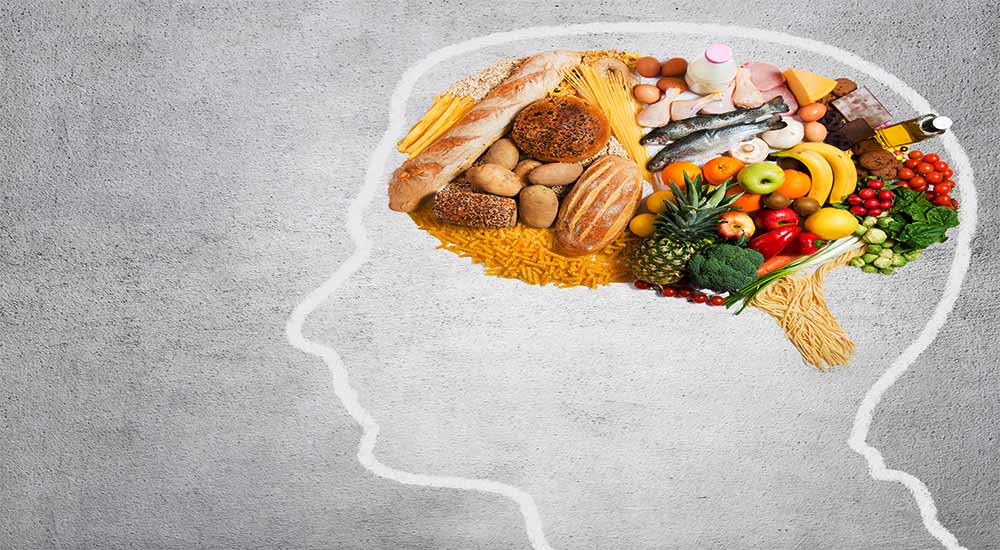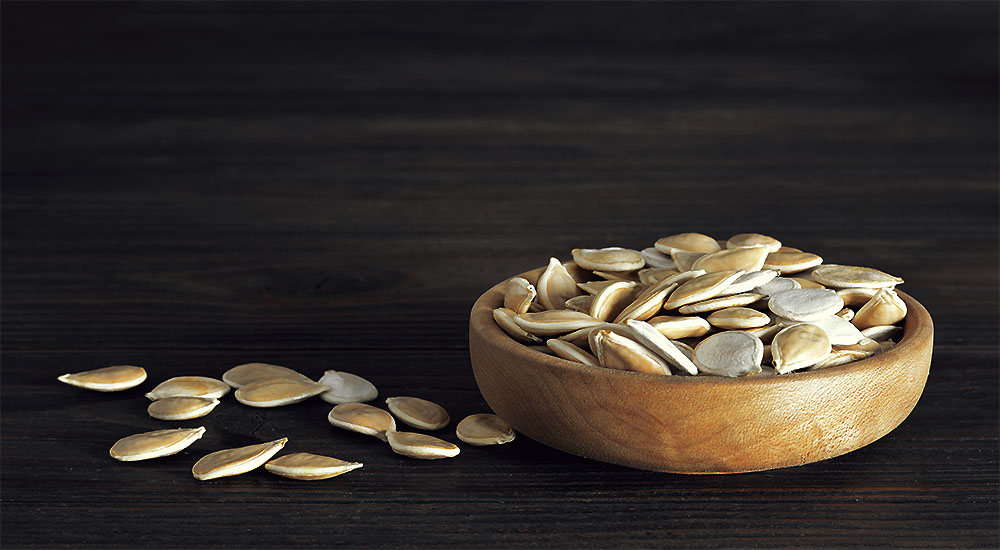The Surprising Best Food for Your Brain

What should you eat for a healthy brain?
And perhaps a better question, IS what you eat a determining factor for creating a healthy or sick brain?
Dr. Lisa Mosconi, the author of the book Brain Food, is an expert in the area and some of her findings may surprise you, especially in the current era of ketogenic diets and a pervasive belief that fat is a great fuel for the brain.
Dr. Mosconi is truly an expert in her field. She holds two PhDs, one in neuroscience, the other in nuclear medicine. She’s a professor of neuroscience at Cornell and Director of the Women’s Brain initiative. Her specialty is early detection of Alzheimer’s sat risk women. She’s certified in Integrative Nutrition, is a Holistic health practitioner, and is world renown as a neuroscientist and neuronutritionist. It’s no overstatement to say she’s qualified to give advice on brain health.
Increasing Alzheimer’s incidence on a scary trajectory
Let’s start with some statistics regarding Alzheimer’s; they are truly scary. The disease currently costs the United States $277 billion per year. It affects 6 million of us, 2/3 of whom are women.
What is perhaps most frightening is the dramatically increased incidence of the disease.
Cases are estimated to triple by 2050, with costs rising to $1 trillion per year!
To give you perspective on the size of 18 million people, that’s the population of NY, LA, and Chicago combined.
Is genetics the sole determining factor?
There’s a big difference between “Genetic determinism” vs. “genetic predisposition”. In the former, you have no choice, the latter states a predisposition but not a determination that’s out of your control. Fortunately, for most conditions, despite the presence of genetics, it’s truly only a predisposition, meaning you do have control of whether you will develop the disease in question.
Most people concerned about Alzheimer’s are those for whom there is a family history, with the assumption that genetics are at play. But are those the only ones who should be concerned? No.
It turns out that only 6% of families with Alzheimer’s disease carry the gene, substantiating that it’s a disease of lifestyle, not purely genetics.
Diet is the most important factor
Lifestyle is key, but THE most important component of lifestyle is diet. Dr. Mosconi’s research reveals that diet is always on top when it comes to risk factors.
When should you begin to make good brain health choices? Healthy diet choices cannot begin too soon.
The truth is that Alzheimer’s develops slowly as a result of early life choices, per Dr. Mosconi. Diet decisions even in your twenties can affect your brain decades later.
Alzheimer’s is not a disease of old age
Alzheimer’s can start “showing” in your 50’s or 60’s despite having no genes for it, but the disease factually begins much earlier in life, only becoming obvious in one 50’s or ’60s.
What is clear is Alzheimer’s is not a disease of old age or bad genes.
As stated above, changes begin very early in life.
Yet, on the flip side, you can age into your nineties and hundred, with zero dementia.
Get your inflammatory markers checked… and fixed
Inflammatory markers in your thirties can show risk, and such markers should be acted upon immediately.
It can happen even earlier in life. We have children with pre-diabetes and diabetes, this is a disease of inflammation, ditto for high cholesterol, and obesity.
Here at Root Cause, we evaluate blood markers with a critical eye. By that I mean we don’t just look at a test from the viewpoint of whether it shows disease, but additionally from the perspective of what is optimal.
If you evaluated inflammatory markers solely from the viewpoint of disease, the way conventional medicine does, you would only “comment” when the threshold for the disease is crossed. You would miss a lot that way.
We look at your blood test and take action on any levels that are not optimal. This would include fasting insulin, blood glucose, C-reactive protein, ferritin, ESR, to name a few.
Is it your brain, or are you dehydrated?
One incredible step you can take for your brain health couldn’t be easier or less expensive.
Your brain is built on water. In its live state, it’s 80% water.
Water is important for energy production and it turns out your brain is the first organ to suffer from dehydration.
Just a 2-4% loss of water volume in the brain can create neurological symptoms such as dizziness, brain fog and confusion.
Even mild dehydration is associated with shrinkage of your brain and brain malfunction. Cognition will suffer as a result.
How much water do you need?
What’s needed? 8 glasses of purified water is a good start, more if you live in a hot climate or are very active.
What type of water? Dr. Mosconi encourages spring water rather than distilled because you need minerals. I agree; I’ve never been a fan of “stripped” distilled water.
Now that you’re addressing the first step of hydration, what else should you do for optimal brain health?
Glucose and your brain; its main energy source
Your brain needs glucose for energy. How much energy does glucose? Per Dr. Mosconi, 99% of your brain’s energy comes from glucose. This isn’t “some” or “a lot”, it’s 99%.
During normal physiological conditions, your brain runs on glucose.
As if that wasn’t enough to make the case for eating adequate complex carbohydrates (the proper source of glucose), Dr. Mosconi pointed out that glucose is needed to make neurotransmitters.
When people are critical of carbs they are speaking of highly refined simple carbohydrates in the form of sugar, white flour, etc. We are all in agreement that simple carbs are a bad idea, most especially to excess. But complex carbohydrates are an absolute necessity.
What are neurotransmitters?
As the word implies, neurotransmitters “transmit”, across the nerve junctions, impulses from one nerve to another. A chemical is released at the end of a nerve which allows the transmission to occur.
Glucose is the substrate, or base, needed to form the neurotransmitters glutamate and gaba.
Glutamate is a very important excitatory neurotransmitter, affecting cognitive function, learning, and brain development.
Gaba is an inhibitory neurotransmitter on the calming side of the equation, helping the body to sleep, relax, calming your mood, and thereby lessening anxiety and stress.
90% of all the synapses, or the connections in the brain, need glutamate, made from glucose, for excitatory neurotransmission.
Nutritional pearl: Glucose cannot be replaced by anything else dietarily when it comes to brain energy and the production of neurotransmitters. It’s not an opinion; it’s a fact.
Is fat good food for your brain or is it moving you towards dementia?
As I alluded to earlier, there’s been a big “keto push” for brain health. The idea that a very high-fat diet loaded with coconut oil and high-quality meat is good for the brain, was not supported by Dr. Mosconi’s robust research. She likes good fat, as do I, but not to the degree recommended by a ketogenic diet.
Large population studies of over 6,000 people have demonstrated that eating 13 grams or more of saturated fat doubles your risk for developing dementia. The safe threshold is 6 grams or less.
Let’s look at some examples of animal-based food and its saturated fat content:
1 Tbsp butter – 7 grams of saturated fat
1 chicken breast – 4 grams of saturated fat
1 chicken drumstick – 5 grams of saturated fat
3 ounces lean ground beef – 5 grams of saturated fat
1 slice cheddar cheese – 6 grams of saturated fat
As you can see, a small burger with a slice of cheese puts you over your safe saturated fat gram limit.
Is good fat of any benefit?
When it comes to trans saturated fats, we are in agreement they are dangerous.
But what about saturated fats such as MCT oil (preferred) and coconut oil? In moderation they may be fine, depending on your health status, but in excess, they are not a good idea.
There is a caveat regarding fat intake and brain health and that is for children. Up to adolescence when brains are growing, a nice amount of good quality fat to build neurons in the brain is recommended. In support of this, human breast milk is almost 50% saturated fat.
Adult brains, on the other hand, are fully formed and need much less saturated fat per Dr. Marconi.
DHA is the most important brain fat and adult brains definitely need DHA from omega 3s.
You can safely get DHA from algae supplements containing zero saturated fat and no worry about mercury toxicity potentially contained in fish oils.
Health hack: if you’re not eating any healthy fish or taking algae and you’re trying to get DHA from the precursor ALA found in such plant foods as flax, soy, pumpkin seeds and walnuts, it’s important to know that you lose close to 75% of the ALA amount when it converts to DHA. In other words 100 mg of ALA will only produce about 25 gm of DHA.
The end of Alzheimer’s book doesn’t recommend a ketogenic diet for brain health
The author of the book, The End of Alzheimer’s, Dr. Dale Bredesen, agrees that high fat is not a good idea. He likes a mild form of ketosis for his patients which he calls a “ketoflex” 3/12 diet. It consists of no food 3 hours before bed and a 12 hour fast before eating breakfast. It will put you into a mild form of ketosis on a daily basis.
Here at Root Cause, our team of doctors agrees.
The gut-brain connection
Finally, no conversation about the brain is complete without mentioning the gut. The gut-brain connection is a vital one and it’s for this reason we need to evaluate the presence of any bad bacteria in the gut.
Bad bacteria not only causes your gut to be more permeable, a leaky gut, but it makes the brain more permeable as well.
We used to think that nothing could penetrate the brain’s barrier or shield. But we now see that bad bacteria in your gut can “hijack” your brain, allowing toxins and inflammatory agents to infiltrate.
The solution is a healthy gut and a diet full of fiber, prebiotics, and probiotics to maintain a healthy gut.
Are you ready to protect your brain?
Are you wanting to do the best for your brain, but don’t know where to begin? Are you worried about your memory, loss of concentration, or perhaps a family history of Alzheimer’s or cognitive decline?
Solutions are at hand. They’re natural and easy, but you will need a clinician who understands how to apply for functional medicine.
We create personalized programs to identify and address the underlying root cause of your symptoms.
Here at Root Cause Medical, we have the tools to identify the real reason you aren’t feeling your best. The truth of the matter is there’s always a reason, and once discovered your body is fully capable of healing. There’s no magic pill but it is a bit magical.
Your body is an amazing machine – it just needs a little help.
Do you need help with your health?
We have the diagnostic and testing tools, the clinical experience, and a different medical approach to discovering the root cause of why you have the symptoms that are bothering you. As long as you are ready to make some dietary and lifestyle changes, we can help you. We will "hold your hand" through the changes, step by step, to make each step an easy one. We are located in Clearwater, FL, at 1000 S Ft Harrison, at the corner of Ft. Harrison Ave. and Magnolia St. There is plenty of parking space directly accessible from Ft Harrison. If it is not convenient for you to come to Root Cause Medical Clinic, we offer telehealth/telemedicine consultations to residents of certain states. Call us for details.
Contact us for a Consultation – Call 727-335-0400

Dr. Vikki Petersen DC. CCN
Founder of Root Cause Medical Clinic
Certified Functional Medicine Practitioner
Dr Vikki Petersen is a public speaker, author of two books, several eBooks and creates cutting edge content for her YouTube community. Dr Vikki is committed to bringing Root Cause Medicine and its unique approach to restoring health naturally to the world.
Ask a Doctor
Have a health concern you'd like to speak with a doctor about? Or just want clarity on a subject? Ask Us!


